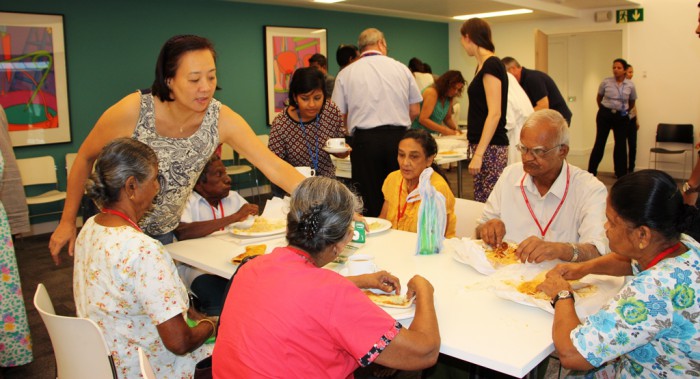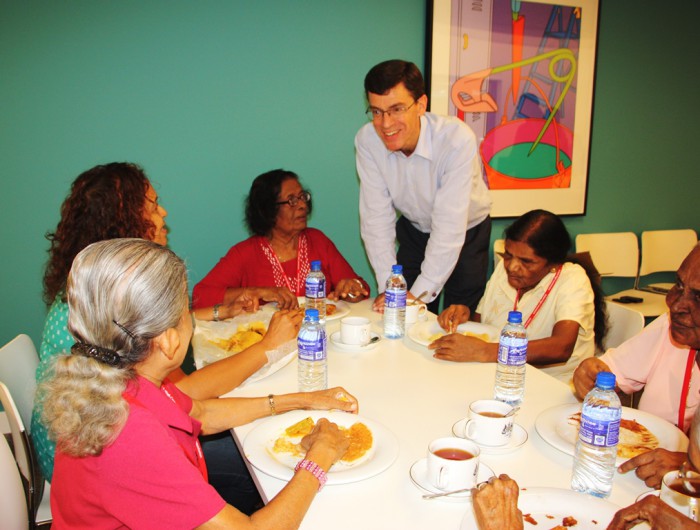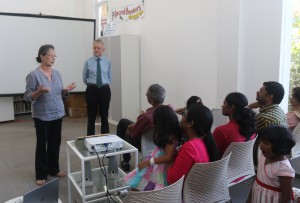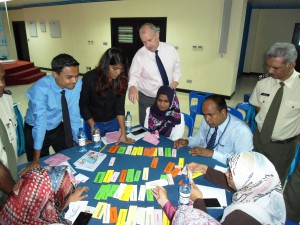10th October 2015 Colombo, Sri Lanka
World Mental Health Day

This year, World Mental Health Day is focusing on dignity.

We all have mental health. Treating people with mental health problems with dignity helps everyone take steps to safeguard their wellbeing. Failing to do so can lead to self-stigma, low confidence, low self-esteem, withdrawal and social isolation.
Providing effective support to people experiencing mental health problems can be a major challenge. This blog looks at two great initiatives.
Samutthana is the King’s College London resource centre for trauma, displacement and mental health. This British-Sri Lanka partnership has been growing since 2012. This year, over 100 psychology graduate volunteers have spent three months in Sri Lanka, reinforcing local psycho-social care provision and developing their own skills, particularly through working with those who are recovering from exposure to conflict.

The volunteers work in hospitals and community mental health settings across Sri Lanka, preparing therapeutic activities and helping individuals work towards recovery. Lora Thompson spent five weeks here last summer and she says “The whole experience was both incredibly challenging and truly rewarding. I learnt more about teamwork and leadership by putting myself in situations which you would never find in the UK, and I truly feel like I have come back a better person. I came back from Sri Lanka with tons of amazing memories, a wealth of new experience and new friends which I’ll keep for life.”
Over the last two years, the High Commission has run mental health awareness workshops for the police, tour operators and tourism sector around Sri Lanka. This year, the team travelled to the Maldives. Last year, 88,704 British tourists travelled there, and mental health needs are no respecters of holidays. The Maldivian Police Force kindly lent us their Iskkander Building, an ideal location to bring together over 150 staff from the police, coastguards, army, airport, immigration, tourism sector, hospitals and prisons.

“But there is no problem of mental health in the Maldives” said a participant on Day One. “We just don’t have mental illnesses here”. By Day Two, however, participants were openly talking about their personal experiences and discussing both mental health and the stigma still attached to mental illness in their communities. This kind of event is important for the well-being of all those involved in stressful front-line jobs (it’s #timetotalk for a reason). And it also helps ensure that British tourists with mental health needs in the Maldives are treated with the dignity we all deserve. We hope to go back again soon, this time with a focus on women police officers.
If you have mental health needs and are travelling abroad, start with the Foreign Office’s Mind How You Go checklist. And for more about Colombo’s Consular services, read Who you Gonna Call?”
very nce